
The hardware industry faces a persistent challenge: efficiently and safely packaging items of varying lengths, particularly those with sharp edges or points. Traditional methods often

In this era of pursuing sustainable development and environmental protection, every biodegradable packaging bag contributes to the world’s sustainable development. When we walk at a wide range of stores, or enjoy the joy of online shopping, those bags holding clothes and daily necessities often become part of hot topics that cannot be ignored. Traditional plastic bags are widely used for their low cost and durability, but it is difficult to be decomposed completely, thus posing a long-term and far-reaching threat to natural ecology. It is in this context that compostable garment bags came into being, and they provide us with a packaging solution that is both environmentally friendly and practical.
You may have these questions: What is a compostable garment bag? What are they made from? What’s so appealing about them? How to choose high-quality compostable garment bag? This article will answer these questions and provide you with useful information, including the raw materials of these bags, the benefits and the proposals for selecting compostable clothing bags, etc. Whether you are a clothing manufacturer or a retailer, I believe that this article will surprise you.
Compostable garment bags, as their name suggests, refer to packaging bags for clothing that can be decomposed into non-toxic substances such as water and carbon dioxide within 6 to 12 months through the action of microorganisms in the natural environment. This innovative product not only retains the basic functions of traditional clothing bags, such as protecting clothes, dust-proof, etc., but also realizes a qualitative leap in the selection of materials and production technology.
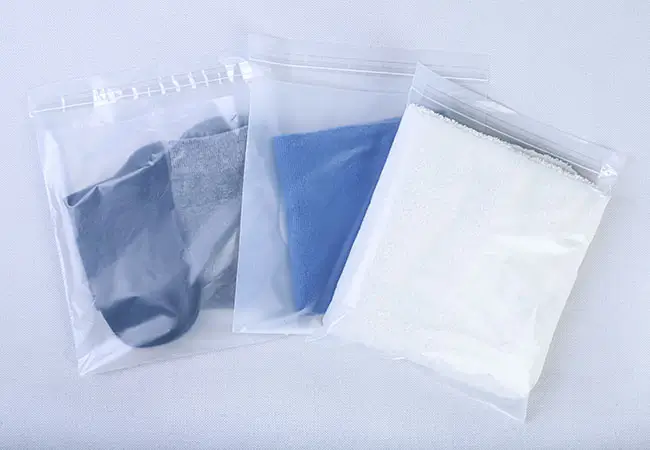
They are usually made from plant-based materials such as corn starch, PBAT and PLA (polylactic acid) and can return to the natural cycle after degradation, effectively reducing the consumption of non-renewable resources such as petroleum. By this, reducing the carbon footprint and the burden on the earth will be achieved.
Compostable bags for clothing are derived from bio-based raw materials such as PLA, PBAT and cornstarch, which are easy to be decomposed into organic fertilizer within 6 to 12 months. Using these clothing packaging bags could reduce carbon dioxide and reflect social responsibility. There is no doubt that this practice will enhance your brand image and attract more potential customers. Besides, bio-based materials are derived from renewable resources, so the increasing use of compostable bags for clothing can reduce the exploitation of non-renewable resources such as petroleum, maintain energy security, and achieve sustainable development.
On the contrary, traditional plastic packaging bags are made from polyethylene and will be gradually broken down into smaller compounds in the natural environment, such as soil, water or air. This process is usually very slow because the molecular structure of PE is very stable. These plastic bags are difficult to decompose and will be decomposed into micro-plastic particles. These micro-plastic particles, if eaten by animals or dispersed in the air, ultimately endanger human health through the food chain. If ordinary plastic bags that are hard to be decomposed are discarded into ocean or soil, they will have adverse effects on the ecological environment, such as marine pollution, soil pollution, etc.
As one of the raw materials of compostable clothing bags, PBAT has good ductility and impact performance, and PLA has great glossiness and transparency. Consequently, biodegradable garment bags made from PBAT usually have high tensile strength, durability and transparency. They can meet the needs of clothing packaging and become popular around the world.
Excellent Dust Resistance
Compostable garment bags are mostly made from biodegradable materials, such as polylactic acid (PLA), etc. These materials have great barrier properties and can effectively protect the items in the bags from getting dirty.
In order to improve the effect of dust prevention, these bags usually have a tight sealing design, such as heat sealing, zipper closure, self-adhesive tape, ultrasonic sealing, etc. All these technologies ensure that the bag’s mouth is tight and has no leakage.
Advanced technology helps to improve the quality of products. In the production of compostable clothing bags, advanced sealing technology will be used, such as high-pressure edge sealing, ultrasonic welding, etc., so that the edge of the bag is smooth, firm, and not easy to break.
High-quality biodegradable materials have good homogeneity and stability, which makes these clothing bags more reliable in sealing performance and suitable for the long-term storage of goods.
Customizing compostable garment bags is an important practice of environmental protection concept and social responsibility. Logos, printings, patterns, slogans, dimensions, thicknesses, and colors are customized based on your personalized requirements. By using such clothing bags, enterprises show a positive brand image to consumers and enhance brand reputation and social influence.
In a highly competitive market, customized compostable bags for garments become a means of differentiated competition for many enterprises. It can not only attract more consumers with eco-awareness, but also enhance customer loyalty.
Garment bags are reusable and can be used to hold clothes, socks and other items, which is conducive to reducing resource waste and cultivating good living habits.
The use of compostable garment bags can reduce fines and legal risks caused by violating regulations related to restrictions on the use of traditional plastic bags, thereby reducing business operating costs and improving corporate image.
The promotion and application of these eco-friendly bags will promote the industrial upgrading of the packaging industry. Enterprises are required to constantly innovate and develop new technologies to meet market demand, so it will promote technological progress and sustainable development of the entire industry.
The popularization of compostable clothing bags will promote the improvement of consumer environmental awareness. When more and more consumers choose to use earth-friendly packaging bags, a powerful social force will be formed to promote the development of environmental protection.
Environmental certification: Please check whether the clothing bags have passed the environmental certification issued by the National Environmental Protection Department or other authoritative institutions, such as ISO 14001, ASTM D6400 by the United States, EN13432 certification by the European Union, etc. These certifications are an important indication of product quality and great biodegradability.
You shall scrutinize whether the words “fully biodegradable”, “environmentally friendly” or “compostable” are printed on the surface of the bags, and whether there is a degradation time. At the same time, we can also pay attention to whether there is a test report issued by an authority.
We shall preferentially choose garment bags made from natural polymer materials such as PLA and PBAT. These bags not only have good bio-degradation performance, but also have high durability and heat resistance. They can meet the needs of clothing packaging.
If you want to customize the bags’ sizes, thicknesses, patterns, printings, colors, etc, a custom garment bag manufacturer will meet your requirements. By using customized compostable bags, you could build up a corporate image and increase the publicity of the products.
In some cities, you can find compostable clothing bags at wholesale markets for packaging materials. A large number of compostable bag suppliers gather there, offering a wide range of biodegradable packaging bags and relatively competitive prices.
If you need to wholesale a large number of compostable garment bags, you can also directly contact the manufacturer through online B2B platforms such as Alibaba, Google Ads, etc. Manufacturers often provide more favorable prices and more flexible customization solutions.
Some environmental organizations may also provide compostable garment bags. These organizations or institutions are usually committed to promoting the concept of protecting the environment, so the garment bags provided often have high quality and environmental performance. Consumers can learn about the detailed information by browsing the official websites and social media channels.
Compostable garment bags is an eco-friendly packaging solution and enjoy popularity in the domestic and overseas. These bags are reusable, eco-friendly, durable and cost-effective. Besides, they could promote industrial upgrading and improve environmental awareness. When you select compostable garment bags, you are supposed to take certification and raw materials used into consideration. Offline wholesale markets and online B2B platforms offer a large quantity of compostable bags for garments. By choosing a sustainable packaging solution, you are pursuing a brighter future.

The hardware industry faces a persistent challenge: efficiently and safely packaging items of varying lengths, particularly those with sharp edges or points. Traditional methods often
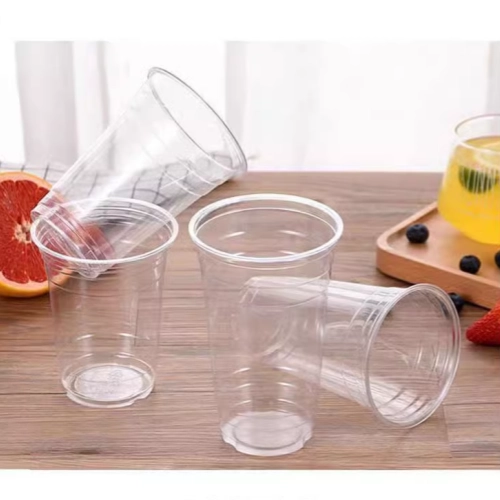
The escalating global concern over plastic pollution has ignited a fervent search for sustainable alternatives. Amidst this environmental awakening, biodegradable materials have surged into the
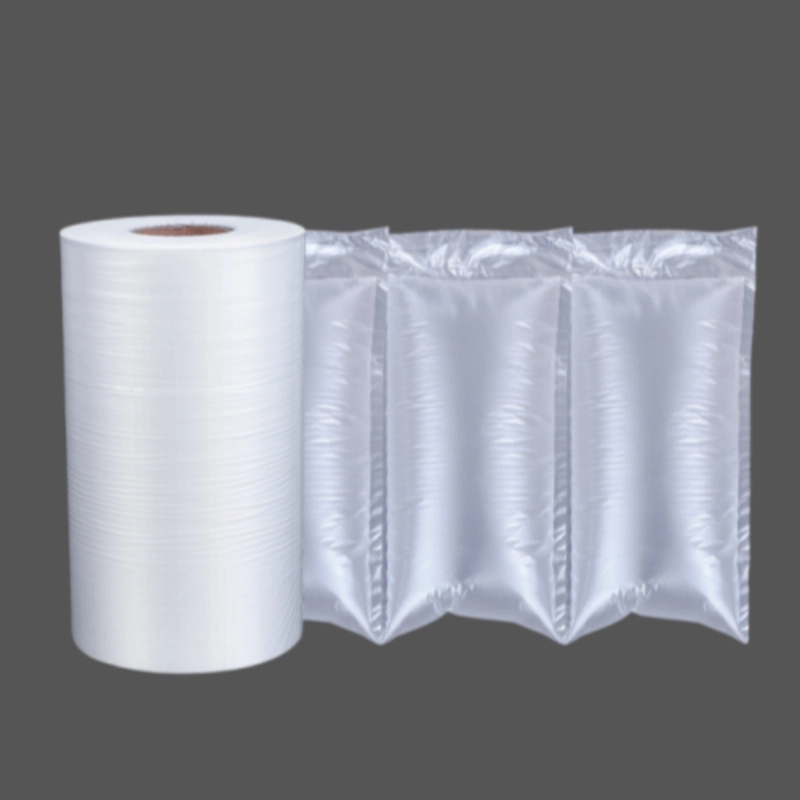
In today’s hyper-connected world, e-commerce reigns supreme. From everyday essentials to coveted luxuries, the vast majority of goods now traverse continents and neighborhoods to reach

Leading the Green Future | ShinHigh Bio Invites You to CHINAPLAS 2025 for a Sustainable Innovation Journey! 5-Day Countdown| Global Plastics & Rubber Elites Gather
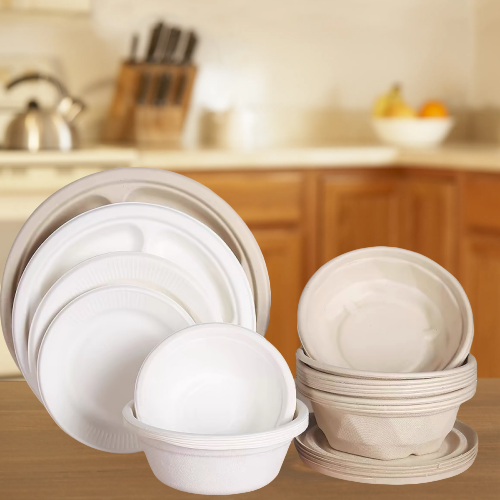
On one side, we face the increasingly severe issue of plastic pollution, while on the other, the fast-paced lifestyle compels us to rely on takeout
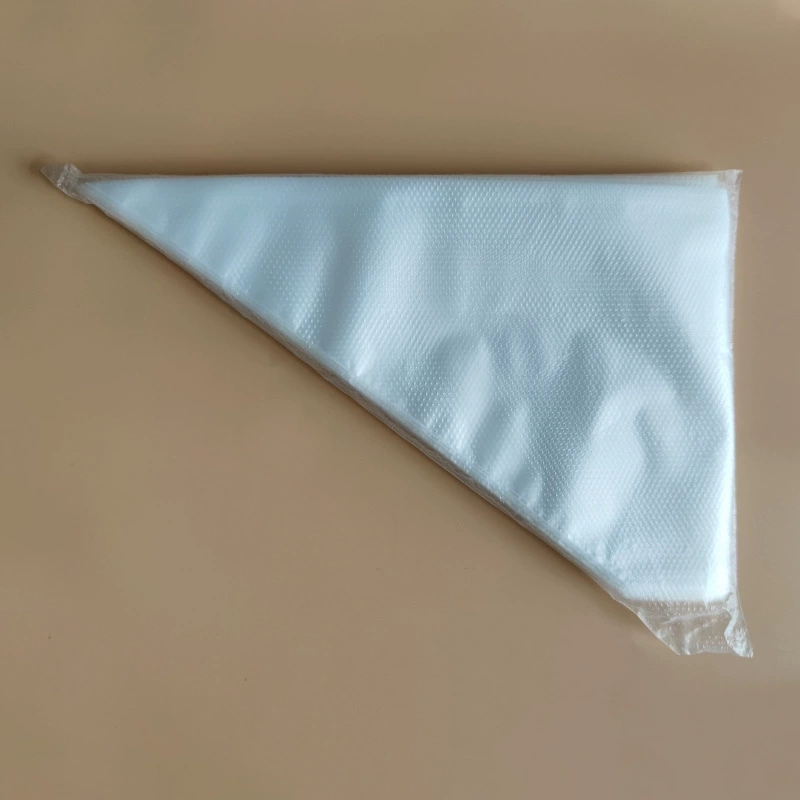
If you’ve ever watched a baking show or tried your hand at decorating a cake, you’ve probably seen a piping bag in action. These simple